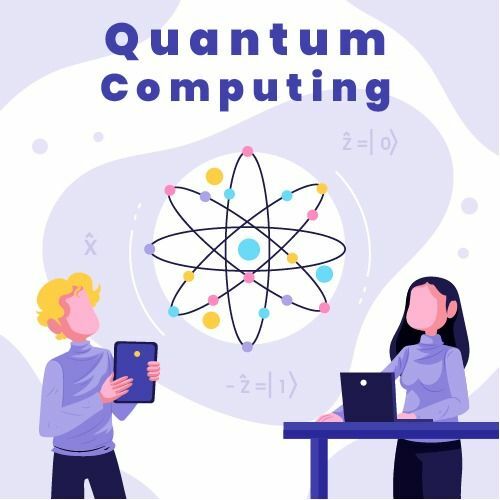Notifications
ALL BUSINESS
COMIDA
DIRECTORIES
ENTERTAINMENT
FINER THINGS
HEALTH
MARKETPLACE
MEMBER's ONLY
MONEY MATTER$
MOTIVATIONAL
NEWS & WEATHER
TECHNOLOGIA
TV NETWORKS
VIDEOS
VOTE USA 2026/2028
INVESTOR RELATIONS
COMING 2026 / 2027
ALL BUSINESS
COMIDA
DIRECTORIES
ENTERTAINMENT
FINER THINGS
HEALTH
MARKETPLACE
MEMBER's ONLY
MONEY MATTER$
MOTIVATIONAL
NEWS & WEATHER
TECHNOLOGIA
TV NETWORKS
VIDEOS
VOTE USA 2026/2028
INVESTOR RELATIONS
COMING 2026 / 2027
About Me
 justin anto
justin anto We are more than just a digital news platform we are a community of passionate storytellers, curious explorers, and industry experts driven by one mission: to keep you informed, inspired, and in touch with what truly matters in today’s fast-evolving world. At Gozuni, we bring you the latest and most relevant updates across technology, startups, fashion, travel, lifestyle, and beyond. Whether you're a tech enthusiast, a budding entrepreneur, a travel junkie, a style seeker, or someone who just loves to stay updated with trends—Gozuni is your one-stop destination.
Posted by - justin anto -
on - Jun 9 -
Filed in - Technology -
Quantum Computing ion q google quantum computer -
103 Views - 0 Comments - 0 Likes - 0 Reviews

Quantum computing isn’t just a futuristic buzzword bouncing around tech conferences—it’s already here, and it’s redefining how we think about artificial intelligence. I remember the first time I signed up for a cloud-based quantum experiment. I wasn’t a physicist I was an IT enthusiast curious about how companies like IonQ and Google Quantum Computer could deliver on promises of insane computational speed. Fast-forward to today, and it’s clear: quantum computing companies are quietly but powerfully reshaping AI’s trajectory. Let’s dive into five practical ways they’re doing it, and how you can ride this wave as you chart your IT career.
1. Supercharging Machine Learning Model Training
Traditional AI models chew through terabytes of data on GPUs in data centers. But quantum computing offers a shortcut: quantum bits (qubits) process information in parallel thanks to superposition. Companies like ion q and Quantum Computing Inc are pioneering hybrid approaches that let AI engineers offload the toughest optimization tasks to quantum hardware.
Imagine training a deep-learning model for medical image recognition. Normally you’d wait days for convergence. With Microsoft Quantum Computing’s partnerships leveraging their Azure Quantum stack you can experiment with quantum-inspired algorithms that find optimal weight configurations far faster. The result? Faster experiments, quicker iterations, and reduced cloud costs in the long run.
2. Solving Complex Optimization Problems
When you hear “optimization,” think supply-chain logistics, portfolio allocation, or neural architecture search. These problems explode combinatorially: even a slight uptick in variables can send compute needs through the roof. Here’s where quantum computing companies shine.
Take Google Quantum Computer’s work on the quantum approximate optimization algorithm (QAOA). In partnership with financial firms, they’ve run pilot tests on portfolio rebalancing, achieving better risk-return profiles than classical heuristics. If you’re an IT pro curious about fintech or operations research, mastering these quantum-enhanced optimizers will set you apart in any team.
3. Enabling New AI Algorithms
Quantum computers aren’t just faster they operate under different mathematical rules. That opens doors to brand-new AI paradigms, like quantum neural networks and variational quantum classifiers. Research groups within Microsoft Quantum Computing and startups such as Quantum Computing Inc are publishing libraries that bridge Python’s TensorFlow and Qiskit.
I’ll never forget attending a webinar where a data scientist live-coded a quantum-classical hybrid network. She trained on the MNIST dataset and achieved accuracy on par with a small classical network without exhaustive GPU hours. If you’re exploring a career pivot into AI research, contributing to open-source quantum AI projects is a great first step.
4. Pioneering Secure, Quantum-Resistant AI
AI models are vulnerable to adversarial attacks and cryptography underpins so much of our secure pipelines. As quantum threats loom, companies like ion q (trading on NYSE IONQ) are collaborating on post-quantum cryptographic standards that protect data during both training and inference.
Picture this: you’re building an AI-based healthcare app handling sensitive patient data. Incorporating quantum-resistant encryption from day one ensures compliance with evolving regulations. By staying informed on white papers and participating in industry consortiums, you’ll help safeguard tomorrow’s AI applications.
5. Democratizing Access Through Cloud Platforms
You don’t need a lab full of dilution refrigerators to experiment with qubits. The major players Google Quantum Computer, Microsoft Quantum Computing, and startups like ion q have all launched cloud portals that let you run quantum circuits via APIs. Some even offer free tier access for education.
Think back to learning Python for the first time: it was a game-changer because you could install it locally and play. Today, the quantum equivalent lives in your browser. If you’re mentoring junior developers or running a study group, point them to these free resources. Hands-on exposure builds intuition, and that’s gold in interviews for roles focusing on emerging tech.
Conclusion
Quantum computing companies are more than promises they’re already changing how AI evolves, from accelerating model training to fortifying security. As you explore a career in IT, start small: run a QAOA example on IBM’s or Google’s free tier, follow IonQ’s blog, or join a Microsoft Quantum Computing workshop. You’ll not only deepen your skillset but also position yourself at the forefront of AI’s next frontier. The quantum leap is underway are you ready to make yours?
